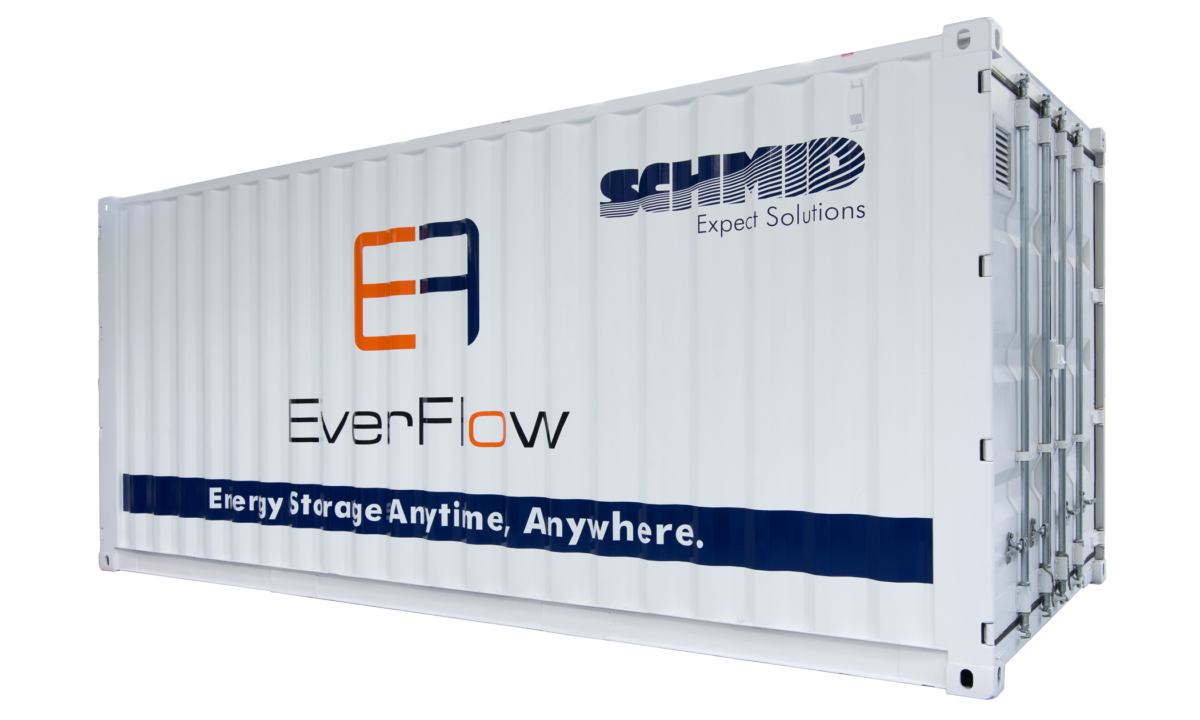Schmid has completed the installation of three of its vanadium redox flow battery systems to a customer in China.
The purchaser of the batteries is not named, but according to Schmid is “one of the world’s leading producers for high efficiency solar cells”. The Everflow battery systems will be charged by a PV system and controlled by a company-wide energy management system.
“It was goal to use our self-produced solar energy more efficiently, and to maximize it’s use,” says the CTO of the unnamed buyer. “We decided to go with Schmid’s technology because it is much safer than other technologies and it has a much longer lifetime.”
After a successful phase, according to Schmid, the customer plans to use the storage solution in combination with its own large-scale PV plants. These three systems represent the first that Schmid has delivered to China, and the company expects to target further sales of its storage systems in the region.
“Due to increasing environmental awareness and continuous strong economic growth in China, the demand for sustainable and renewable energy is quickly increasing,” says Schmid’s vice president of BU energy systems, Henrik Buschmann.
“The large amounts of PV and wind power plants producing renewable energy require energy storage systems in order to ensure a stable grid. Due to this development, the Chinese market is very important to us.”
Flow batteries are often touted as an alternative to lithium-ion, and major test installations utilizing various iterations of the technology are underway in both Germany and China. Whether this technology can breakthrough alongside the rapid scale-up of lithium battery production though, remains to be seen.
This content is protected by copyright and may not be reused. If you want to cooperate with us and would like to reuse some of our content, please contact: editors@pv-magazine.com.




By submitting this form you agree to pv magazine using your data for the purposes of publishing your comment.
Your personal data will only be disclosed or otherwise transmitted to third parties for the purposes of spam filtering or if this is necessary for technical maintenance of the website. Any other transfer to third parties will not take place unless this is justified on the basis of applicable data protection regulations or if pv magazine is legally obliged to do so.
You may revoke this consent at any time with effect for the future, in which case your personal data will be deleted immediately. Otherwise, your data will be deleted if pv magazine has processed your request or the purpose of data storage is fulfilled.
Further information on data privacy can be found in our Data Protection Policy.